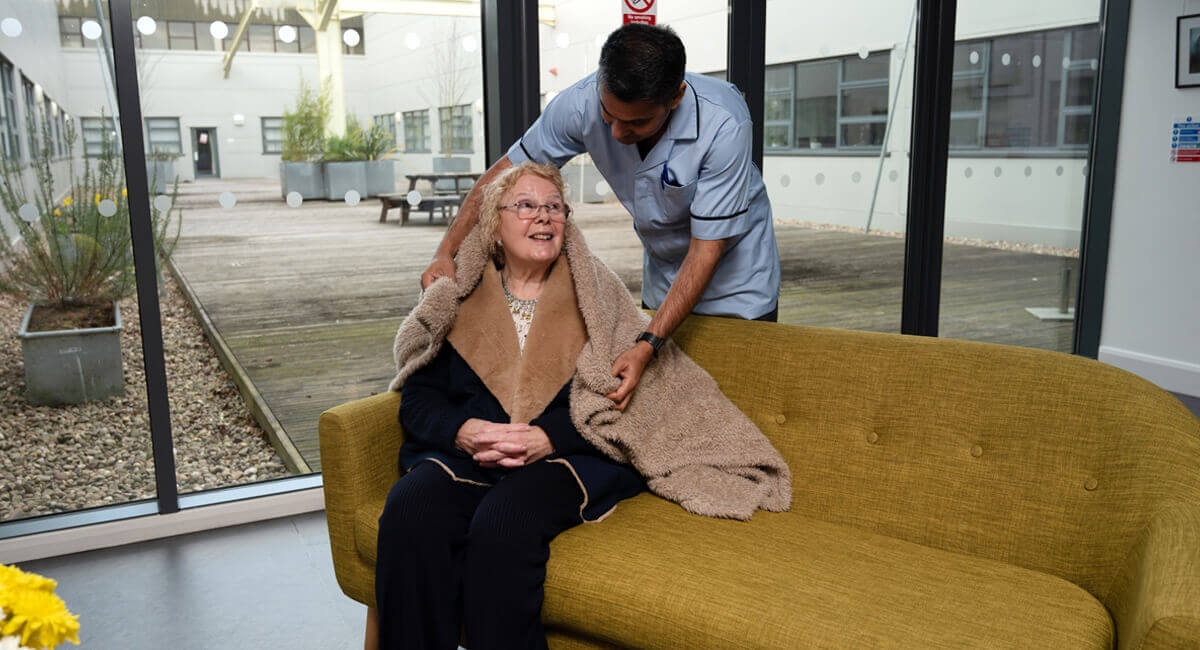
7 Winter Health Concerns for Elders
The bone-chilling season has arrived. For many, this is a time of celebration and fun, but for seniors, it is a time of additional challenges. Seniors are particularly vulnerable to extreme cold weather because they are more sensitive to lower temperatures.
To fully enjoy the season, you and your loved ones must be aware of the risks that come along with it. When the temperature drops and it becomes icy or snowy, older adults can stay safe by being aware of their health issues and taking the necessary actions.
As the weather turns colder, seniors are more vulnerable to a variety of health problems and injuries. Aging bodies lose heat faster than younger people. When elderly people are unaware that they are cold, health problems arise. They are as follows:
1. Falls
Icy, snowy conditions are always dangerous for seniors because they can slip and fall. This is because elderly people have weak muscles, vision problems, and decreased balance. Falls can cause a variety of serious injuries, including wrist fractures, head trauma, hip fractures, and major lacerations.
Seniors who shovel snow may fall if they slip on the snow or ice. Overexertion, which can lead to injury, is another health issue that can arise while shoveling. Shoveling strains the heart in seniors with heart disease. Furthermore, shovelling is hazardous for seniors who have balance problems or osteoporosis.
2. Hypothermia
Hypothermia is a situation when the body temperature gets low. Older adults are more prone to hypothermia as their bodies lose heat faster than those of younger adults. Hypothermia sets in when the body temperature drops below 95°, which can occur even in 60° weather. The threat of hypothermia is dangerous because when the blood vessels and arteries narrow, blood flow is restricted and can trigger many health issues such as heart attack, kidney problems, liver damage, or even worse.
3. Flu
Seniors are especially vulnerable to the flu because their immune systems deteriorate with age, making it difficult to fight the virus. According to the Centers for Disease Control and Prevention (CDC), older people over the age of 65 account for up to 90% of seasonal flu-related deaths. Elderly people are also more vulnerable to flu complications, particularly respiratory issues like pneumonia.
4. Frostbite
Frostbite can occur when seniors spend excessive time outside in the cold without proper clothing. The extremities, which are the farthest from the heart, are the most vulnerable to frostbite.
Frostbite most commonly affects the nose, ears, cheeks, chin, toes, and fingers. When frostbite is severe, seniors can lose limbs. People who already have certain chronic illnesses, such as diabetes, vascular disease, and COPD, as well as those who take specific medications, such as beta blockers and certain sleeping pills, are at a higher risk of frostbite.
5. Car accidents
Driving on slippery snow and ice is dangerous for seniors. Slower reflexes and poorer eyesight in the elderly make it difficult to maintain vigilance while driving. In fact, people aged 65 and up are involved in more car accidents than other age groups.
6. Carbon monoxide poisoning
Winter is the most dangerous time for carbon monoxide poisoning due to gas-powered furnaces and alternative heating sources. Though it may not be the first peril to consider for winter weather safety, seniors and their families should be aware of the symptoms of CO poisoning — headaches, confusion, dizziness, nausea — and make sure they don't confuse them with the symptoms of influenza or tiredness.
7. Social Exclusion
One of the most common pieces of advice given to the elderly is to stay inside to avoid health problems and injuries. However, this will result in a number of other complications, such as seasonal affective disorder (SAD). SAD is caused by a lack of sunlight, which is associated with shorter days and less time spent outdoors. SAD can cause depressive symptoms such as fatigue, insomnia, irritability, and self-imposed isolation. Isolation then causes its own set of problems, wreaking havoc on the immune system and heart health.
Cold weather is one of the most dangerous seasons for the elderly, who are predisposed to a variety of health problems.
Nurses Group Homecare helps you or an elderly loved one live comfortably throughout the winter by providing the best care support , making their lives joyful even when they are confined at home.